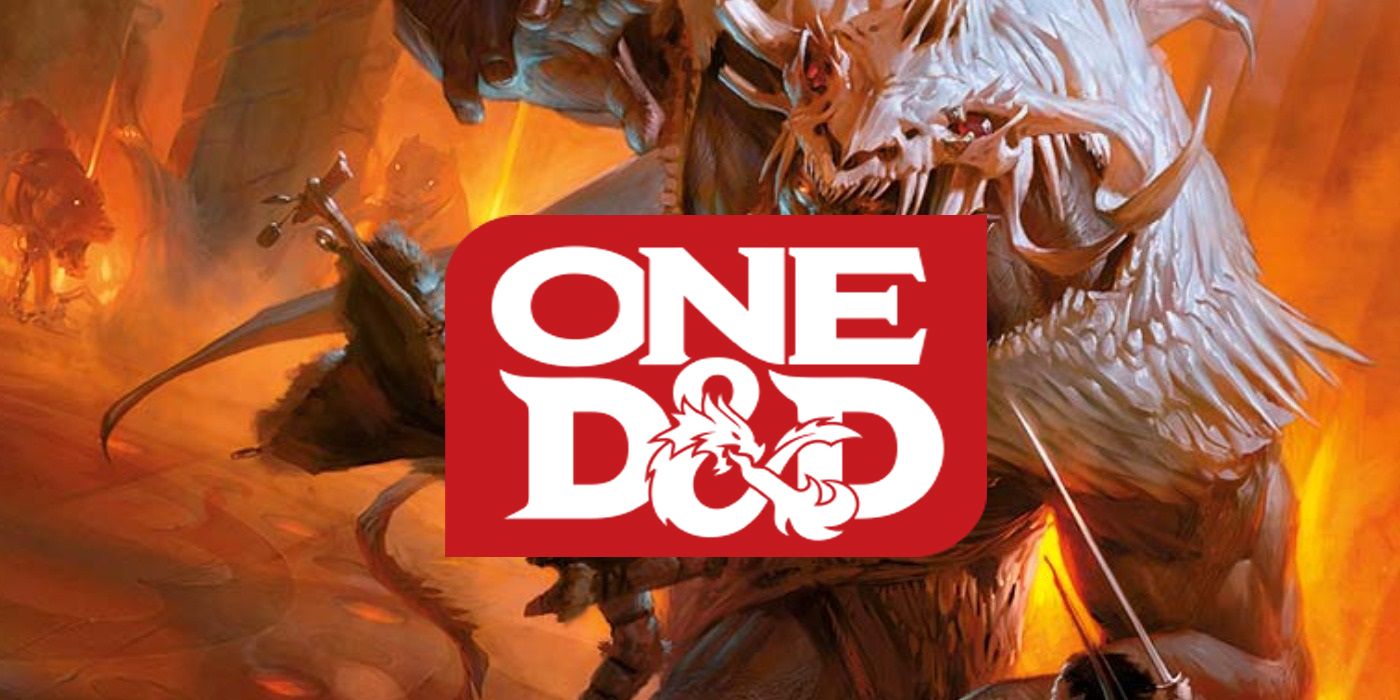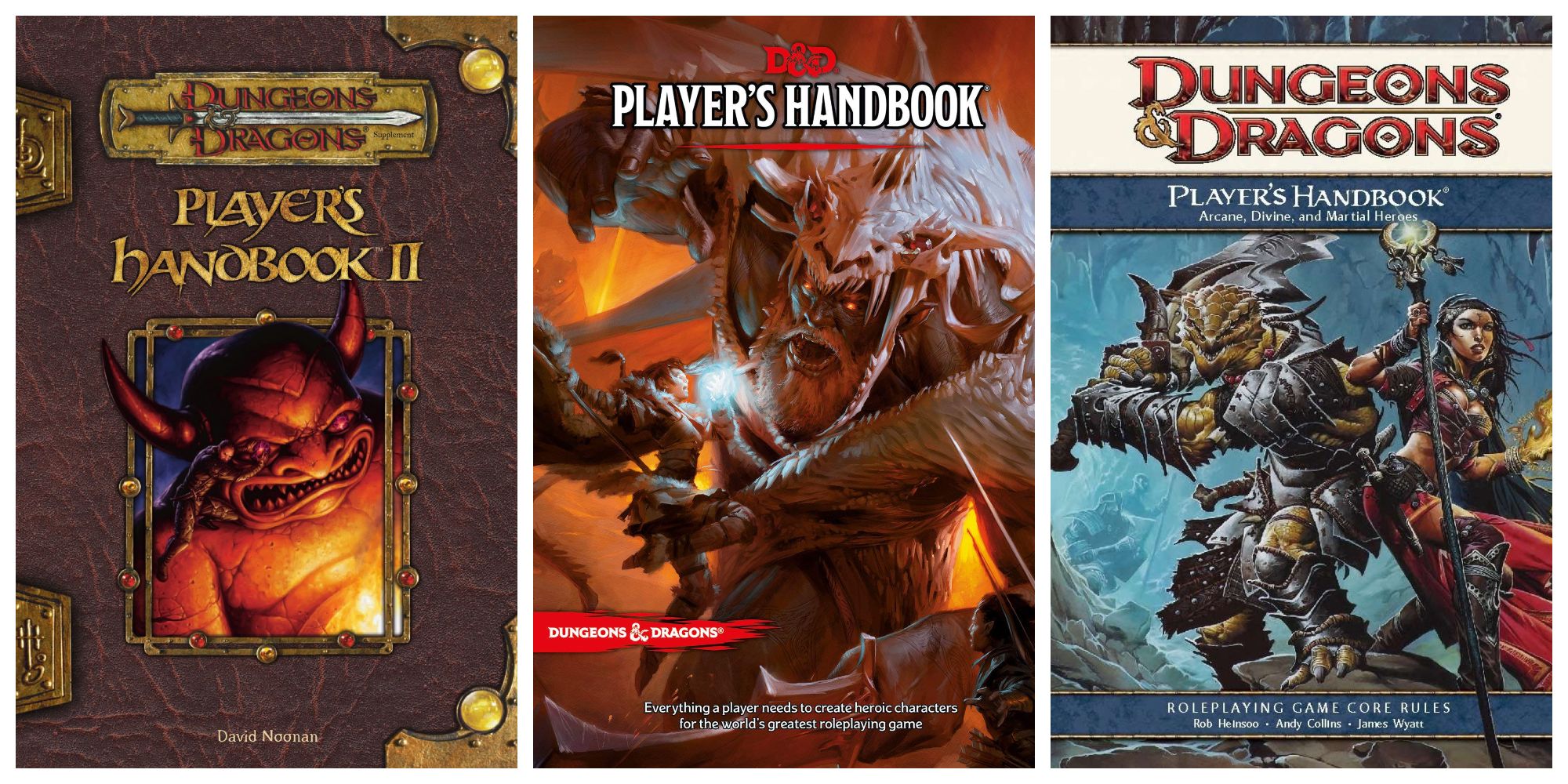There’s a lot of buzz surrounding the yet-to-be-released new edition of Dungeons & Dragons, currently being referred to as One D&D by developers at Wizards of the Coast. Judging by preview materials released on the WotC website, it appears One D&D will retain the core structure of Dungeons & Dragons 5th edition while also striving to fix its more problematic aspects. This raises two key questions: first, after the release of One D&D, will the Dungeons & Dragons role-playing game be able to evolve further while still retaining D&D‘s quintessential elements? If not, how will Wizard of the Coast’s D&D content publication strategies change over time?
As the original tabletop fantasy roleplaying game, first conceived of and played in the 1970s, Dungeons & Dragons has gone though several editions over the decades. First, there was Chainmail, a set of rules for medieval miniature war-gaming designed by Gary Gygax and Jeff Perren; this pamphlet contained a 14-page section on how to run fantasy war game scenarios with elves, dragons, wizards, and other mythical tropes, giving D&D co-creator Dave Arneson the mechanical template needed to resolve combat scenarios in his Castle Blackmoor dungeon-crawling sessions. After teaming up to develop a fully-realized “Fantasy Game,” Dave Arneson and Gary Gygax wound up codifying key game mechanics found in nearly every fantasy tabletop RPG and fantasy computer RPG – character classes such as rogues and clerics, dungeon-crawling, experience points, leveling up and more.
For the most part, each new edition of Dungeons & Dragons has tried to retain the core gameplay old fans enjoyed about the original RPG while also trying to make D&D‘s rules more fun for new players. Wizards of the Coast designed and marketed D&D 5th Edition as a “D&D‘s best hits” product, revisiting gameplay mechanics from before D&D 4th edition while also adding new narrative-focused features such as Inspiration Dice. If One D&D will truly be a revision of D&D 5e’s core mechanics, this could mean Dungeons & Dragons has reached its final form under the auspices of Wizards of the Coast, or that future editions of D&D will rebuild the world’s first roleplaying game from the ground up.
Why One D&D Could Be The Final Edition Of Dungeons & Dragons

The recently released Unearthed Arcana – Character Origins PDF available for download on the Wizards of the Coast website showcases a number of changes made to the rules for creating Dungeons & Dragons character builds. Notably, rules for fantasy races have been re-worked so that each character class is more compatible with each character race (making builds such as orc wizards and tiefling monks more viable). Additionally, there are new rules for creating characters with the traits of any two humanoid species, allowing D&D players to create PCs who are half-dwarf, half-gnome, or even half-halfling. The Character Backgrounds in D&D 5e have a lot more mechanical weight in the Character Origins preview, giving players access to their initial ability bonuses and starting Feats in addition to skill/tool proficiencies.
In press releases for the upcoming 6th edition of D&D, developers at Wizards of the Coast have declared their intent to keep the rules for the next edition of D&D generally compatible with the setting guides, source-books, dungeon modules, and monster manuals they’ve released for Dungeons & Dragons 5th Edition. This has led some people to describe One D&D as a “D&D 5.5e” that will correct and refine the weaker portions of 5th edition’s gameplay and themes (for instance, the more awkward gameplay features of the Ranger character class). If the rule updates in One D&D do genuinely address most of the criticisms tabletop gamers have towards 5th edition, developers may not see a reason to drastically change the structural formula of the D&D franchise published by Wizards of the Coast, seeing it as the fully realized version of a role-playing game designed to tell stories of heroic fantasy adventure, and simulate monster combat anddungeon exploration.
In the long run, D&D will almost certainly go through major changes in the future. At this stage, though, the D&D formula would probably need to be taken apart and rebuilt from the ground up in order to meaningfully evolve, and Wizards of the Coast is likely nervous about taking such a risk after the mixed reception of Dungeons & Dragons 4th Edition.
Can Dungeons & Dragons Change While Still Remaining Dungeons & Dragons?

There are no shortage of fantasy roleplaying games on the market made by developers who like the core concept of D&D, but don’t like aspects of the game’s rules. The Pathfinder tabletop RPG franchise, for instance, started out as an update of D&D‘s 3rd edition rules, and was very popular among players who didn’t enjoy Dungeons & Dragons 4th edition. In the contemporary tabletop RPG market, games such as 13th Age, Dungeon World, and Quest take a more narrative approach, distancing themselves from the miniature war-gaming origins of D&D in order to highlight dramatic tension. And then there are Old School Revival RPGs such as MÖRK BORG or The Black Hack that hearken back to the halcyon days of pre-edition D&D, where dungeons were treacherous, backup character sheets were a must, and players were encouraged to overcome obstacles using lateral thinking and careful inquiries about their environment.
Beyond One D&D, can the Dungeons & Dragons role-playing game change without becoming too narrative, or too tactical? The conundrum D&D developers face is similar to the Theseus Ship paradox, where the rotting planks of a boat are replaced one by one until nothing of the original remains. Would D&D continue to be D&D without the polyhedral dice-rolling paradigm, turn-based combat, character classes, fantasy races, or gameplay terms such as Saving Throws or Spell Slots?
Or perhaps the essence of D&D isn’t the specific rules, but the specific blend of themes and challenges it lets players experience – the tension of checking a room for traps, the catharsis of rolling a critical success or critical failure, the gratification of teamwork, clever planning, or crafting powerful character builds, and the thrill of interacting with an imagined world filled with magic, mystery, and shout-outs to classic works of fantasy literature. If these elements are more or less in place, future editions of Dungeons & Dragons can evolve in strange new directions while still remaining quintessentially D&D.




